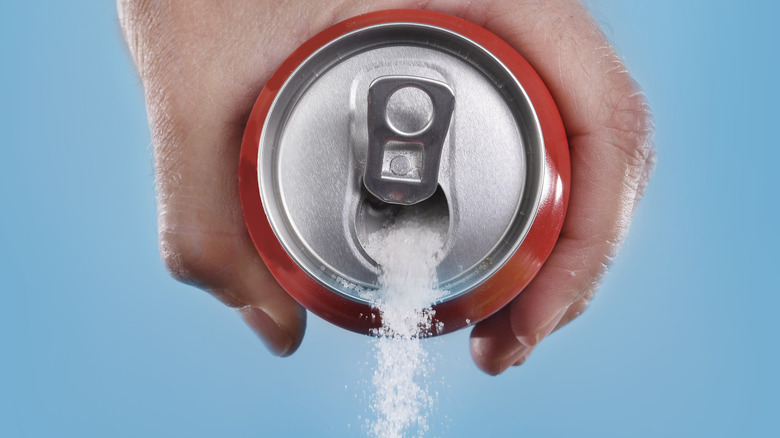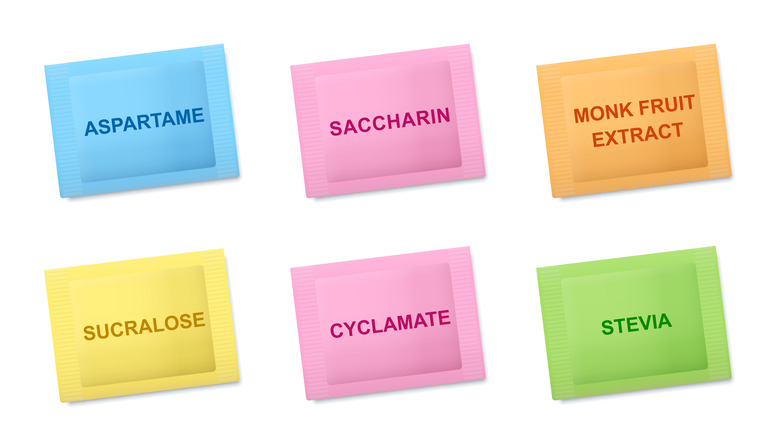The Troubling Sweetener Behind The First Ever Diet Soda
While they may originally have been targeted toward people dealing with diabetes, the artificially sweetened soft drinks that began appearing on American store shelves in the mid-20th century quickly found another group of eager consumers. Initially sold for diabetics in pharmacies, artificially sweetened sodas moved into grocery stores as people saw the drinks' potential as an aid to weight loss. Fast Company reports then-popular slim-waisted actress Kim Novak served as a celebrity spokesperson for No-Cal, the earliest artificially sweetened soft drink. Canada Dry also entered the market early with diet sodas known as Glamor.
Jezebel reports that diet sodas comprised less than 1% of soda sales in 1958, but between 1957 and 1962, diet soda sales increased from 7.5 million to more than 50 million. In 1963, Coca-Cola launched its Tab diet drink and Pepsi launched Patio, later renamed Diet Pepsi. Diet sodas remain a strong segment of the soft drink market, hitting $11.2 billion in sales in 2020, up nearly 20% from 2018, according to a CNN report. At the root of all of this, of course, is the discovery and subsequent development of commercial artificial sweeteners, beginning with saccharin in 1879, reports the American Chemical Society, with cyclamate following several decades later and aspartame and other products coming in more recent years.
The first sweetener used in diet sodas was discovered by accident
Cyclamate, a dozen times sweeter than sugar, according to Saveur, was discovered in 1937 by University of Illinois chemistry graduate student Michael Sveda, as reported by The New York Times. Sveda discovered the artificial sweetener after brushing his unwashed hands across his lips during a smoke break. Noticing a sweet taste, Sveda sampled his beakers and worked out the compound he'd eventually refine into cyclamate. In 1952, per The Conversation, cyclamate was used in the first diet soda ever made: No-Cal. It was subsequently used in combination with saccharin in many diet sodas, including Tab and Diet Pepsi.
In 1969, however, The Washington Post reports that cyclamate was banned, based on findings that it caused cancer in some laboratory rats. However, critics noted that the rats had been injected with massive doses of cyclamate — equivalent to 350 cans of diet soda daily, per the American Council on Science and Health. In the 1980s, the U.S. Food and Drug Administration considered lifting the ban on cyclamate, though it still remains banned in the United States today. At the same time, there are broader concerns about the artificial sweeteners currently in use, with numerous studies suggesting they might have scary health risks (via CNN).

